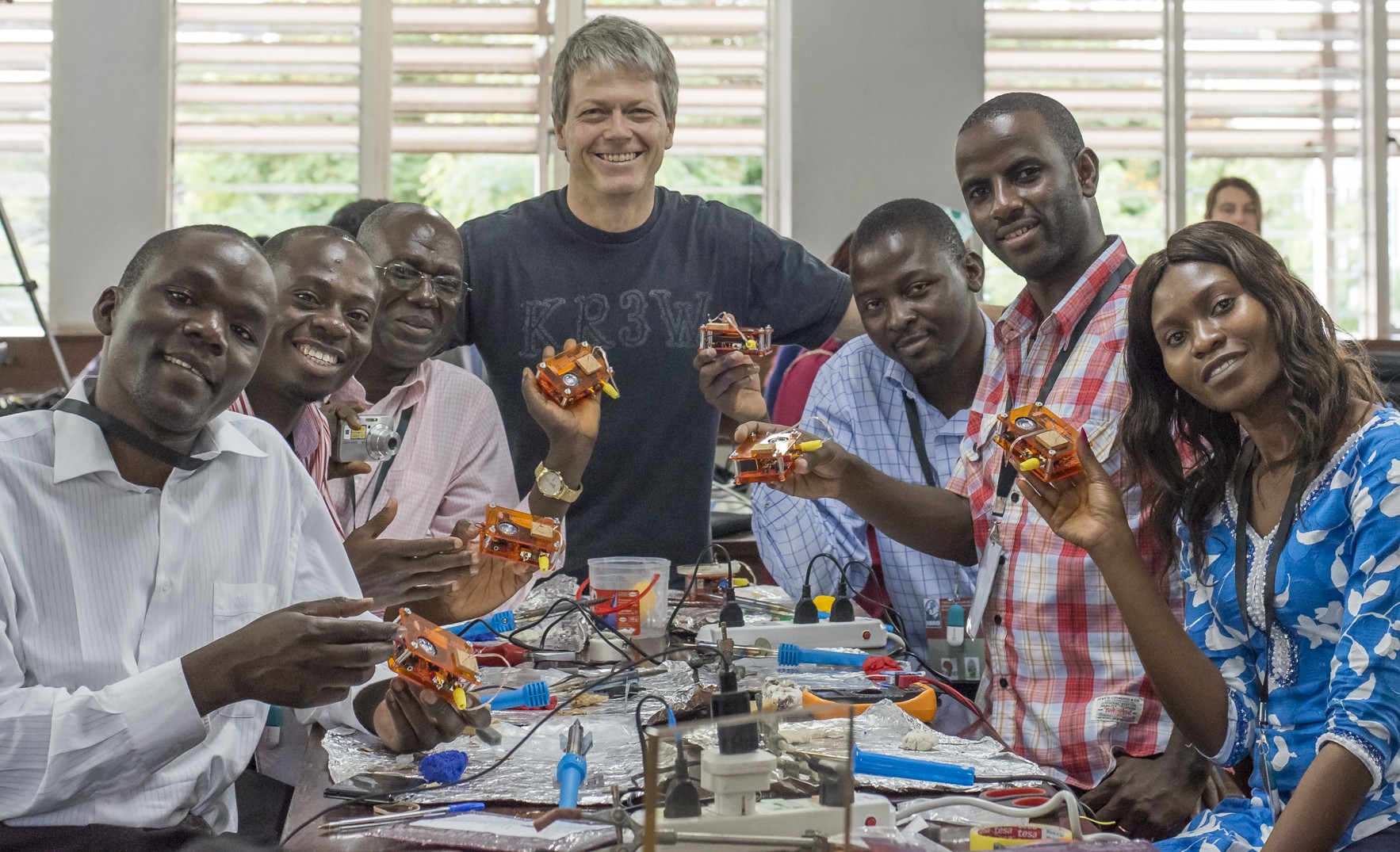
7 July 2015
In 2006 Lucia Prieto, a PhD student at the University of Cambridge, UK, and Sadiq Yusuf, a Professor at the Kampala International University, Uganda, met while attending a Neural Systems and Behaviour course in Woods Hole, MA. They realised a similar course would be invaluable in Africa – particularly as very few scientists on the African continent made use of Drosophila and other insects for neuroscience research, despite their considerable advantage.
Five years later they launched a course in Uganda focused on teaching inexpensive yet cutting-edge research topics in biological sciences. Their first course‘Insect Neuroscience and Drosophila Neurogenetics’ demonstrated the feasibility of organising a laboratory-based programme in Uganda to increase research capacity on the continent.
It was a truly collaborative effort – hosted by the Kampala International University, delivered by four scientists who volunteered to help with teaching, and with important equipment donated from a variety of sources. The Company of Biologists was also instrumental – providing the sponsorship the course needed to make it financially viable and allowing the organisers to offer full scholarships (airfare and accommodation) to the best applicants from outside Uganda, making the course truly pan-African.
This inaugural course demonstrated to Sadiq and Lucia, together with Tom Baden (one of the volunteers), how much of a difference they could really make. They founded a non-profit organisation to formalise their endeavour (www.TReNDinAfrica.org). Over its lifetime the course has kept loyal to its principles of providing high-end education at no cost, and has evolved to incorporate the latest scientific advancements every year and to adapt its contents towards areas of particular relevance for the continent. The Company of Biologists has continued to provide its support – funding the attendance of more than 60 scientists from over 25 institutions in 12 different countries, and helping to develop skills and opportunities for the next generation of African scientists.








You must be logged in to post a comment.